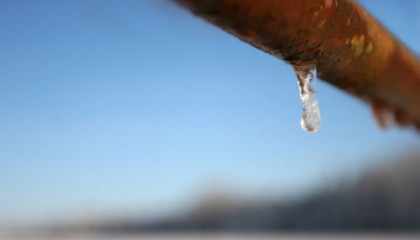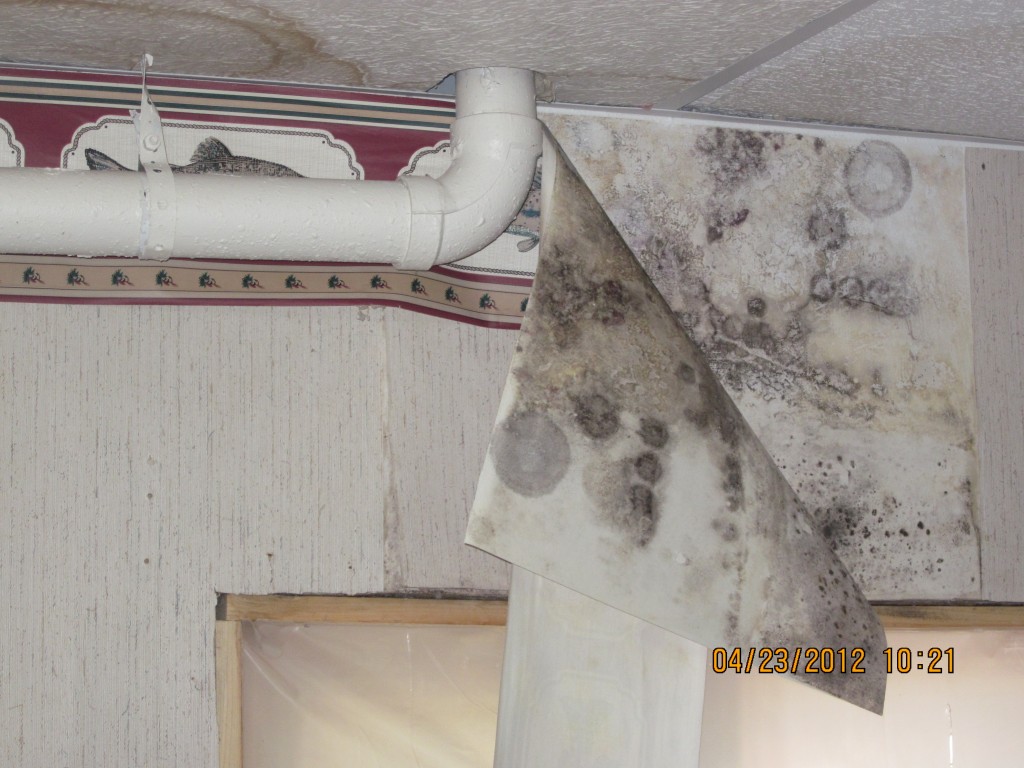Frozen pipes. It’s one of the most frequent household problems we encounter here in the high country. A particularly cold front moves through one night, and you wake up to a flooded home. Or worse – you’ve been out of town for a while, and when you return to your second home in the mountains, you find it’s full of water and even mold.
But why do these pipes break in the first place? What exactly causes a pipe to burst?
The answer is relatively simple, though it’s not necessarily obvious. The pipes freeze, and the ice within the pipe expands. However, a frozen pipe usually does not break where the ice forms, but between the ice blockage and the faucet.
Essentially, the water in the pipe between the ice and the faucet is trapped. The expanding ice pushes on that trapped water, causing an increase in water pressure. If the water pressure gets to be too much, it eventually has to go somewhere. Next thing you know, that pressure relieves itself by breaking through the pipe.
And unfortunately, the water gushing out of a broken pipe can cause all sorts of damage. That water can end up just about anywhere in your home, causing damage to your walls, floors, furniture, expensive electronics, personal possessions, and whatever else is in its way.
If that water isn’t cleaned up quickly, things can get even worse – unhealthy mold can begin growing on damp surfaces in your home in as little as 24-48 hours after it gets wet.
Fortunately, though, there are several simple steps you can take toward preventing a frozen pipe problem in your home, as we’ve written about previously. Wrapping your pipes with insulation from a hardware store can help to prevent a freeze. Keep your thermostat turned up to at least 55 degrees, even when you aren’t at home. A warm home is much less likely to have pipes freeze. Even if keeping your heat on means a few extra bucks on your monthly bill, it’s still a whole lot cheaper than having to clean up and repair a frozen pipe catastrophe.
Opening cabinets under sinks also allows warm air to circulate around pipes. You can even turn on your faucet to just a drip during particularly cold spells. This drip provides a relief for the dangerous increases in water pressure should a freeze occur, though some folks are concerned with wasting the water.
If you do have a frozen pipe problem in your home, start fixing it immediately! The sooner you can repair and clean up a frozen pipe problem, the less damage it can do to your property.
Of course, if you do need immediate help, remember you can contact Rocky Mountain Catastrophe 24/7. We can be at your house in as little as 30 minutes, day or night, to help fix your frozen pipes as quickly as possible. Our plumbers can repair your pipes, and our high-tech water extraction equipment can get any excess dried out right away. We can even help to clean up a mold problem!
To contact Rocky Mountain Catastrophe, call our office at (970) 722-7744 or email [email protected].
If you have an immediate frozen pipe problem or any other emergency, call us day or night at (970) 531-7308 in Grand County or at (970) 819-1239 in Routt County. We are here to help!
For original article/photo credit, click here.



